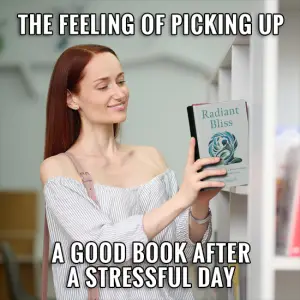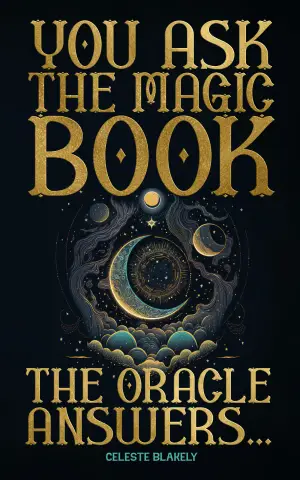I’ve just finished Burnout: The Secret to Unlocking the Stress Cycle by Emily Nagoski and Amelia Nagoski, and wow, what a transformative read! As someone who has always been drawn to self-help and personal development books, I felt compelled to dive into this one after hearing so much about the different ways women experience burnout. This book promised to explore the unique challenges women face today, and I was eager to learn how I could better manage stress and prevent burnout in my own life.
Through the narrative, the Nagoski sisters artfully weave together science, personal anecdotes, and practical strategies that genuinely resonate. They emphasize that all women, particularly those who juggle multiple responsibilities, often find themselves trapped in a cycle of exhaustion and self-doubt. One of the standout points for me was the idea of the "stress cycle," which they argue must be completed in order to reduce feelings of burnout. This concept clarified so much for me about the physical manifestations of stress, making it feel less like an abstract concept and more like a manageable process.
I absolutely appreciated the authors’ straightforward approach to addressing societal pressures, including those stemming from the "Bikini Industrial Complex," which makes it difficult for many women to love their bodies. It’s refreshing to recognize these pressures in an empowering light, reinforcing that how we view and treat ourselves matters. Moreover, the worksheets and exercises throughout the book are incredibly helpful. They provide actionable steps that encouraged me to explore my own feelings and challenges, making the experience interactive rather than passive.
However, as much as I enjoyed the read, I did encounter a couple of criticisms echoed by other readers. Some found that the book occasionally veers into bitterness, indulging in a somewhat heavy-handed critique of societal issues rather than maintaining a purely constructive focus. While I personally found the authors’ insights valuable, I could see how someone looking for solely uplifting content might feel overwhelmed by the intensity of the societal critiques presented.
Another drawback noted by some readers is that certain sections might come off as repetitive, and while I didn’t feel this myself, I can understand how dynamic pacing could be an issue for those who prefer different styles of writing. The occasional heaviness could deter some readers looking for a quick fix.
Despite these minor drawbacks, Burnout has undeniably opened my eyes to how societal expectations can contribute to our feelings of inadequacy and stress. It reinforced some ideas I had about self-acceptance and the importance of rest—strategies that have turned out to be life-changing for me. It’s certainly a book I think everyone should read, as it provides great information dealing with stress and anxiety, with a focus on women’s lived experiences.
The Nagoskis argue that we all must find ways to embrace our vulnerabilities and create supportive networks that prioritize human connection and emotional well-being. Their message is profoundly accessible, making complex concepts about mental health easier to digest and apply. And let’s not forget their assertion that simply taking luxurious baths won’t magically erase burnout; it’s about understanding and addressing the deeper issues at play.
Overall, I would give Burnout a solid 4.5 out of 5 stars. It has moved me toward greater self-awareness and equipped me with tools to manage stress more effectively. If you’re on a journey of self-discovery, or if burnout is a familiar foe in your life, I cannot recommend this book enough. Whether you’re experiencing burnout or just want to better understand how to manage your stress, this book serves as a timely reminder that healthy coping mechanisms and self-care are essential for living joyfully. Make sure to grab your copy and take a step toward meaningful change!








